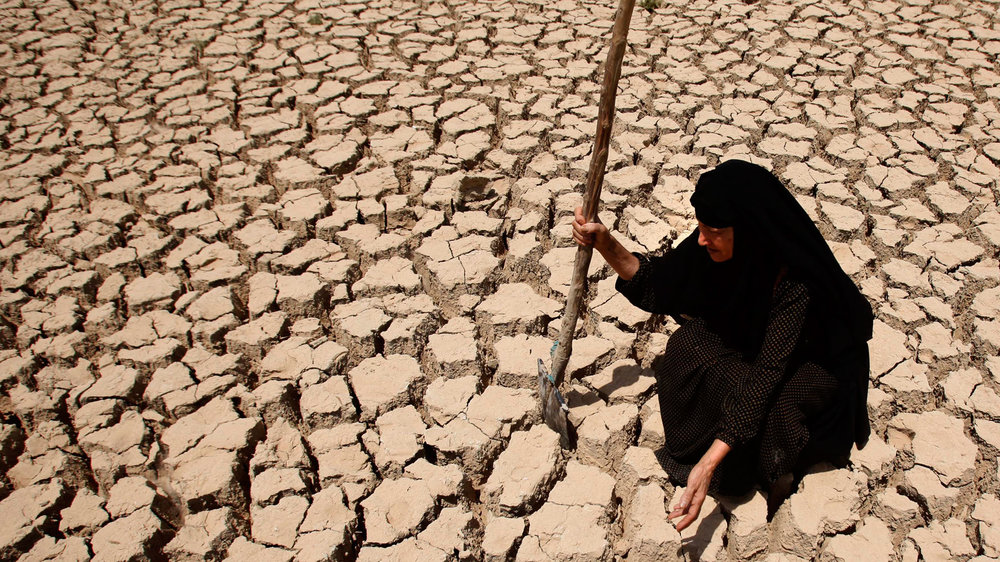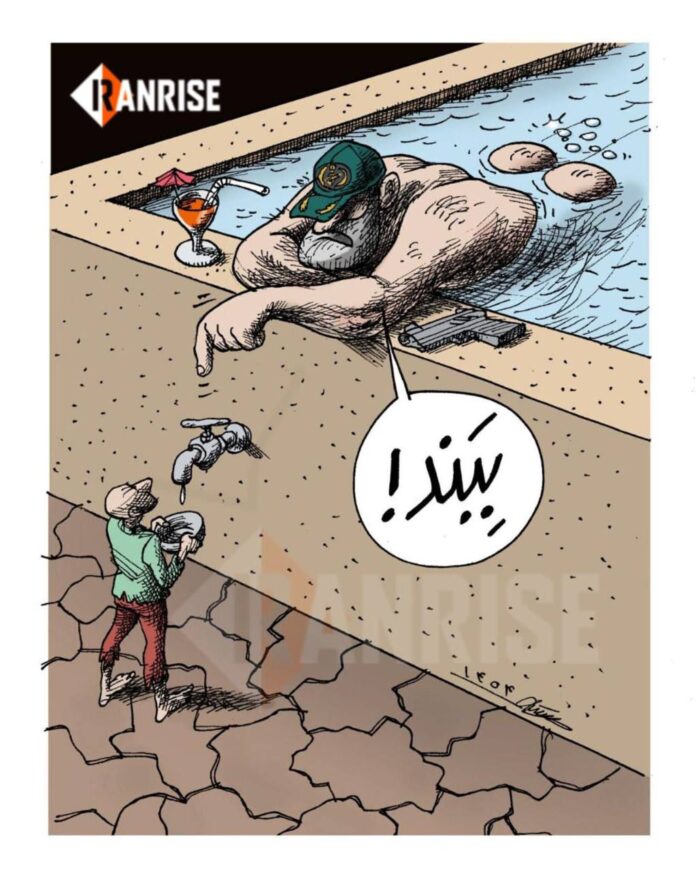Cartoon Triggers National Discussion
A recent cartoon published by IRANRISE has caused a storm in Iran by showing what many see as a stark example of hypocrisy in the country’s water policies. The cartoon shows an officer from the Islamic Revolutionary Guard Corps relaxing in a private swimming pool while telling a thirsty citizen at a tap to stop using water. The image has struck a chord because it reflects what people say is a double standard, officials enjoying plenty of water while ordinary citizens are asked to cut back and live with shortages.
Daily Life Shaped by Shortages
Iran is facing one of its most serious water shortages in decades. In several cities, including Tehran, Tabriz, Yasouj, and parts of Hormuzgan, water is often shut off for long hours. Reports say in some areas water is unavailable from late night until midday the next day. This has raised concerns about public health and hygiene. While the government tells citizens to save water, religious sites, mosques, and seminaries often get free or heavily discounted supplies without any real monitoring. This has led to growing anger about unfair treatment.
Corruption and the “Water Mafia”

Analysts and local experts speak about what they call a “water mafia” in Iran. This network is said to include government officials, contractors linked to the IRGC, and politically connected groups. They are accused of making money through large-scale water projects that damage the environment.
The IRGC’s engineering arm, Khatam-al-Anbiya, along with companies like Sepasad, runs billion-dollar dam and diversion projects that often skip environmental reviews. These projects have worsened natural problems. Lake Urmia has almost dried up, the Zayanderud River barely flows anymore, and groundwater depletion has caused dangerous sinkholes in rural areas.
Protests Met with Force
Water shortages have led to public protests in recent years. In 2018, demonstrations broke out in Khorramshahr and Abadan after locals claimed the government was sending water to Kuwait and Iraq while their own communities had no supply. The protests ended with violence, one person was killed and many were injured. In 2021, more unrest came to Khuzestan and Isfahan, where farmers and residents demanded fair water distribution. Security forces responded with arrests, and authorities restricted internet access to stop protesters from organizing.
Mismanagement at the Core

While drought and climate change make the situation worse, many experts say the main cause is poor management and corruption. Agriculture uses nearly 90 percent of the nation’s water but contributes less than 10 percent to the economy. Experts warn that this imbalance is unsustainable. Some describe Iran’s situation as “water bankruptcy,” a crisis caused not just by weather patterns but by decades of poor planning and political misuse of resources.
A Satire with a Strong Message
The IRANRISE cartoon has hit a nerve because it reflects a truth many Iranians feel every day. It shows that those in power have no limits on their use of water, while ordinary people are forced to ration. It also raises the point that speaking out often leads to punishment, with activists and whistleblowers facing arrest or worse.
Personal Analysis
From my view, the cartoon is more than a piece of art, it’s a snapshot of deep public frustration. It captures a feeling that the problem is not only the lack of water but also the lack of fairness. People will endure hardship if they believe the sacrifice is shared, but when they see privilege at the top, the system loses legitimacy. The water crisis in Iran is both a warning and an opportunity, if the government addressed corruption and planned better, it could ease tensions. But if it continues as it has, public trust will likely fall even further.
Sources: arabnews.com

